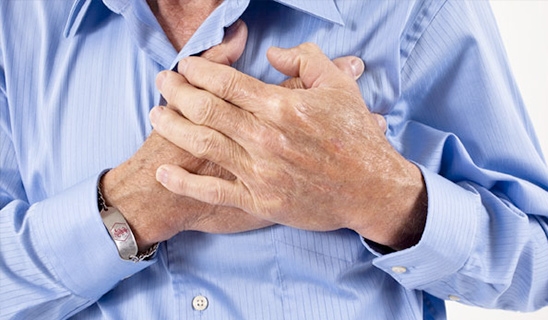There are several different types of cholesterol. The ones we hear most about are often referred to as the “good” cholesterol and the “bad” cholesterol. The bad cholesterol, otherwise known as LDL cholesterol, gets its notoriety from the fact that it transports cholesterol throughout the body. It therefore provides the cholesterol that might become trapped in artery walls and form plaque. HDL cholesterol is considered the good guy because it brings cholesterol back to the liver for reprocessing and possible elimination from the body.
Although HDL and LDL cholesterol are commonly referred to as the good and bad cholesterols, this really isn’t the case. There are two other forms of cholesterol that actually deserve the labels “good” and “bad.”
All forms of natural cholesterol, the type normally found in the body, are good and necessary. Whether it is transported as LDL or HDL, cholesterol provides the body with building blocks to manufacture hormones, cell membranes, vitamin D, etc. Cholesterol is absolutely vital to good health. It is not an evil villain. It’s illogical to believe that nature would create a substance that is vital for good health, but is also toxic.
Something that is good, however, can become bad under certain circumstances. When cholesterol becomes oxidized, its bad side comes out. When researchers analyze arterial plaque, what they find is oxidized cholesterol. Oxidized cholesterol is the only form of cholesterol that collects in arterial plaque. Normal, healthy cholesterol does not build up in artery walls. When fats and oils are oxidized, they become rancid and, consequently, toxic. Cholesterol is the same way. Natural cholesterol is harmless but, when it is damaged by oxidation, it turns bad.
Years ago researchers discovered that if they put oxidized cholesterol into test diets, lab animals developed atherosclerosis in a matter of weeks. If they fed normal cholesterol to animals, it was nearly impossible for them to develop atherosclerosis even when they were fed massive amounts of it. Blood cholesterol levels could rise to over 800 mg/dl and still atherosclerosis would not develop unless oxidized cholesterol was used. Today oxidized cholesterol is routinely used in cholesterol research to induce atherosclerosis in test animals.
The vast majority of the cholesterol circulating in our blood is manufactured in the liver. Only a small amount comes from the diet. Cholesterol manufactured by the liver is obviously not rancid and, therefore, not oxidized. The cholesterol in fresh, natural foods, likewise, is not oxidized. But foods that have been overly processed may contain oxidized (rancid) cholesterol. The foods most likely to contain oxidized cholesterol are animal products that have been dehydrated, dried, or powdered.
The foods with the highest oxidized cholesterol content are dried cheese, powdered whole milk, powdered eggs, powdered butter, hard meats, etc. These types of foods are often used in packaged prepared foods. For instance, a boxed cake mix will list eggs or milk in the ingredients. Obviously, for the mix to be dry, these ingredients must be dehydrated or powdered. Finished baked goods may not be any safer. Was the cake you bought last week at your local grocery store made with fresh eggs or powdered? It’s possible that the bakery used a mix containing powdered eggs.
How about the packaged spaghetti or macaroni and cheese you made last night? Did it come with a packet of powdered cheese?
Did the last pizza you eat contain pepperoni? Did it have powdered Parmesan cheese?
The “good” cholesterol is the cholesterol that is formed in your body and the cholesterol found in fresh, natural foods. The “bad” cholesterol, the one that causes problems, is oxidized cholesterol found in many processed foods.
To avoid bad cholesterol you need to look at ingredient labels. Avoid foods with all suspect ingredients. Better yet, avoid all processed, packaged foods and only eat fresh, whole foods. Make your meals from scratch, so you know exactly what you are eating. This is what our great-grandparents did. In their day, heart disease was essentially unheard of. Today, with the innovations of modern food processing, heart disease has become our #1 killer.
Instead of worrying about cholesterol levels, we should be worried more about the types of foods we eat and the type of cholesterol in those foods. There is no doubt that many factors contribute to heart disease. However, eating better seems to make a big difference, and it is something you can start doing right now.
Hippocrates Organic Coconut Oil is available.





